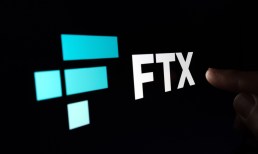This new Wikipink page aims to encourage transparency in the credit industry and drive dialogue on personal finance at a time when credit providers are facing growing scrutiny, the company said in a Wednesday (April 3) press release.
“Wikipink is not just a showcase of Klarna’s achievements, but a call to action for the entire financial industry to prioritize consumer well-being,” David Sykes, chief commercial officer at Klarna, said in the release. “By sharing our data and practices openly, we aim to inspire a shift towards more ethical, transparent and consumer-friendly options.”
The page compares data about Klarna’s BNPL offerings with those of traditional credit and reports that “interest-free BNPL leads to better consumer outcomes than traditional credit,” according to the release.
For example, Klarna reports that its customers pay responsibly and on time, while credit users revolve month-to-month; Klarna’s late fee and debt collection rates are declining, while many credit card users face financial difficulties with their cards; and Klarna’s late fees are “significantly less than other services.”
“We still see too many of the traditional banks and credit card companies pushing products on consumers with exorbitant interest rates, hidden fees and revolving debt,” Sykes said in the release. “It is very clear that the traditional credit card model does not work in the favor of the vast majority of customers.”
Advertisement: Scroll to Continue
This announcement comes about a month after the Consumer Financial Protection Bureau (CFPB) finalized a rule lowering credit card late fees, with CFPB Director Rohit Chopra saying that credit card companies charge these fees even when the consumer’s payment is only a little bit late or when a late payment is out of their control.
“Today, the credit card industry hauls in more than $14 billion in late fee revenue each year, which our research shows is more than five times the companies’ associated costs,” Chopra said March 5.
The CFPB also plans to release data on credit card pricing and availability every six months in an effort to boost competition in the credit card industry to deliver lower rates to consumers.




